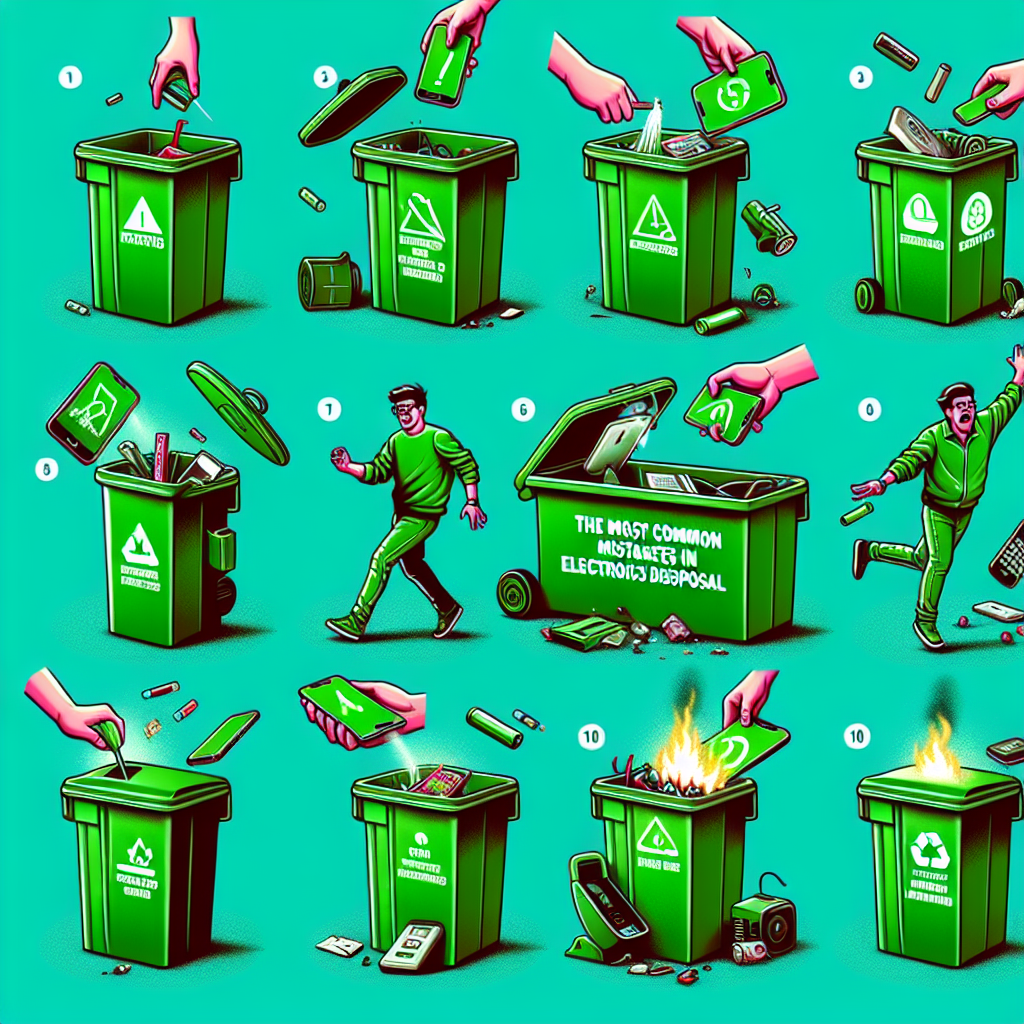Blog Ecobraz Eigre

The 10 Most Common Mistakes in Electronic Waste Disposal
1. Not Complying with Current Environmental Legislation
Irregular disposal of electronics violates regulations established by the National Solid Waste Policy (Law No. 12,305/2010) and related decrees. Ignoring these laws may result in administrative and environmental sanctions.
2. Disposing of Equipment Without the Proper Collection Process
Direct disposal in landfills or common dumps compromises material recovery and causes contamination. The correct action is to use specialized electronic waste collection services, according to guidelines available at https://ecobraz.org/pt_BR/eletronicos, ensuring environmentally appropriate disposal.
3. Not Performing Secure Data Sanitization on Devices
Disposal of media and hard drives without proper sanitization exposes confidential information. Secure sanitization must be done through procedures that guarantee complete data elimination, following protocols indicated at https://ecobraz.org/pt_BR/sanitizacao-de-hd.
4. Disregarding the Risk of Hazardous Substances
Electronic equipment contains heavy metals and toxic substances that require professional handling. Incorrect disposal can contaminate soil, water, and air, worsening environmental and public health problems.
5. Disposal Without Documentation and Traceability
The absence of documentary proof of correct disposal hinders audits and environmental control. It is essential to maintain records indicating the collection, transport, and final treatment of electronic waste.
6. Mixing Electronic Waste with Other Types of Material
Cross-contamination compromises the recycling process and increases treatment costs, as well as posing danger to workers handling the waste.
7. Lack of Technical Training for Handling and Storage
Untrained professionals may cause physical and environmental damage when handling electronic components. Temporary storage must follow regulations to prevent leaks and fire risks.
8. Ignoring the Extended Producer Responsibility (EPR)
The legislation assigns to the holder of the electronic device the duty to ensure environmentally appropriate final disposal. Oversight monitors compliance with this responsibility to avoid environmental impacts.
9. Not Prioritizing Reuse and Recycling
Before definitive disposal, it is recommended to assess the possibility of reuse or forwarding for recycling, reducing waste generation and promoting a circular economy.
10. Underestimating Environmental and Regulatory Impacts
Disregarding the effects of poor electronic waste management amplifies pollution and violates legal regulations, resulting in fines and reputational damage.

Deixe um comentário
O seu endereço de e-mail não será publicado. Campos obrigatórios são marcados com *